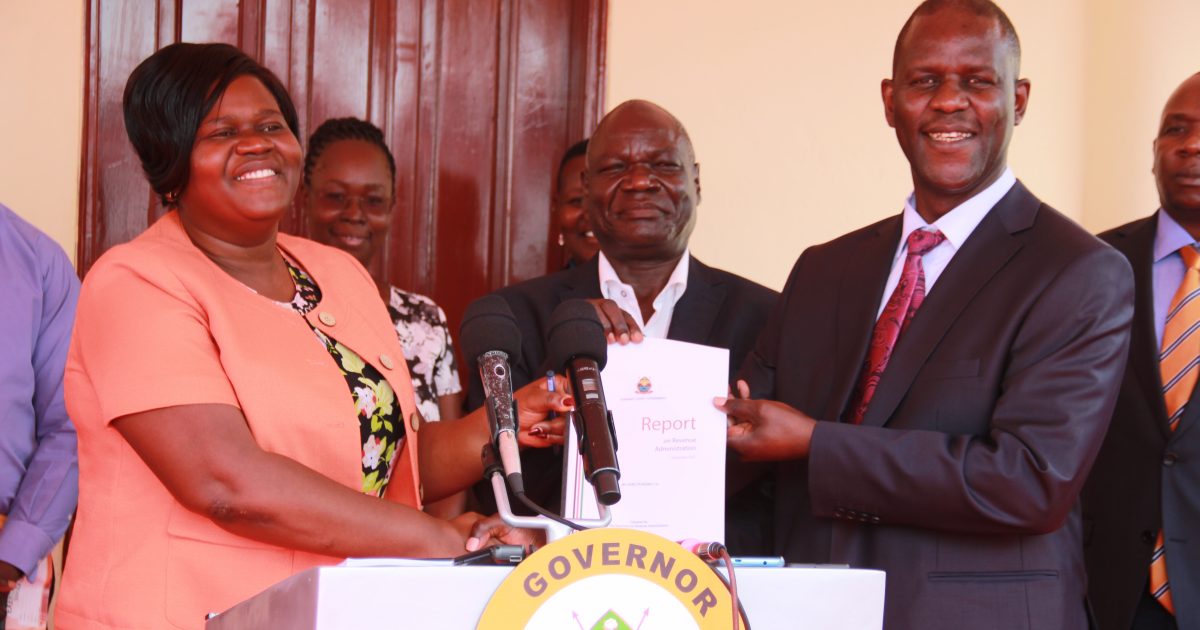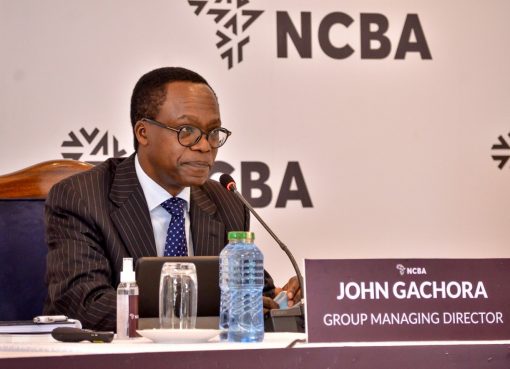Homa Bay County has stepped up efforts to actualize its target of collecting up to Sh1 billion during the current financial year 2022/2023.
Area Governor Gladys Wanga said the Revenue Administration Taskforce had finalized the forensic audit of the county revenue collection and management system and proposed recommendations to meet the set target of Sh1 billion revenue annually.
“I want to thank the revenue taskforce for the impeccable work. They have come up with recommendations that will help us raise our revenue from under Sh200 million to Sh1 billion annually, which we intend to collect in this financial year,” said Wanga.
Speaking Monday during the presentation of the report on revenue collection by members of the taskforce at the County headquarters, Wanga said, “It is a huge task, we have begun and we are making good progress. We are determined to achieve our target this year and probably hit our potential of 2 billion in subsequent years.”
During the audit review process, the 13-member taskforce found that Homa Bay County has the potential of raising not only Sh1 billion as revenue, but up to Sh2 billion yearly, noting this can be actualized through the boda boda sector, which has more than 56, 000 operators county-wide.
Polycarp Okombo, the chair of the taskforce and also the new CEC member for Trade, Industry, Tourism, Co-operative Development and Marketing, said that due to the past political pronouncements in the region, the county has not been collecting revenue from that sector.
“We did examinations of different departments and studied all due businesses in the current revenue structure. We also engaged both internal and external stakeholders and found out that the county is capable of raising Sh2 billion revenue and this is possible through the boda boda sector which has a huge population,” said Okombo.
“We thank the governor for initiating this move to implement our recommendations of engaging these stakeholders and in that line, we discussed with boda boda stakeholders and they have agreed to resume the revenue remittance,” said the chairman.
The county has also engaged the Beach Management Units (BMU) to similarly resume the collection of revenue, which until recently was collected and used at its own source.
Other recommendations by the taskforce include the formation of a revenue collection board responsible for collecting revenue to curb corruption and drafting of a new Finance Bill, noting that the county had been using the defunct 2020 bill, which is no longer effective.
Two months ago, the governor had appointed a committee to audit revenue collection and come up with recommendations to curb and rid the department of leakages.
This is after the realization of revenue breaches in the finance department, occasioned by poor debt collection, ineffective revenue administration structure and risky cash-based transactions among other irregularities.
According to Wanga, this step was to help in streamlining the revenue collection department in order to achieve accountability as well as ensuring that all revenue collected reaches the County government.
By Sitna Omar




